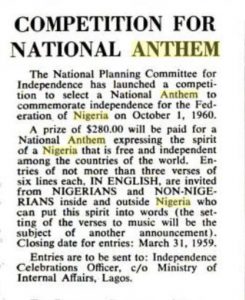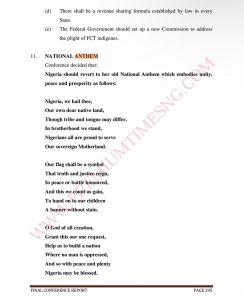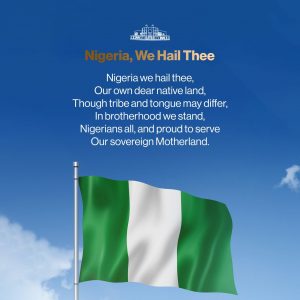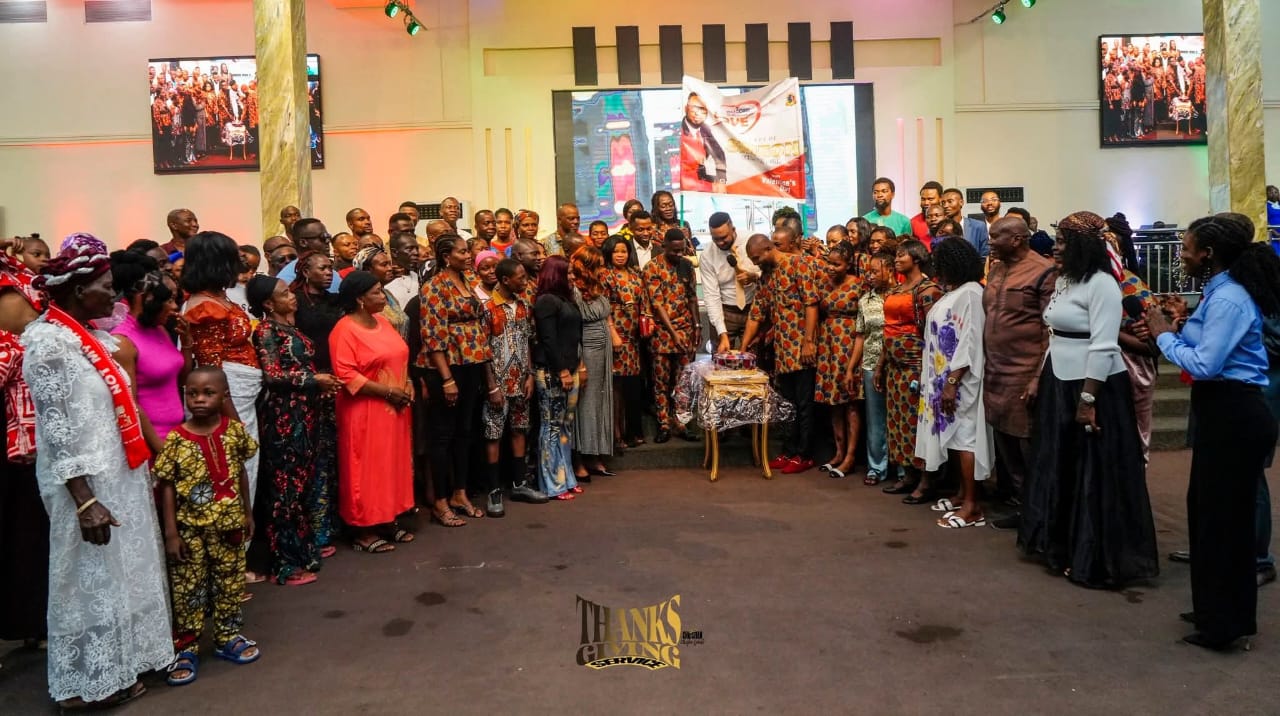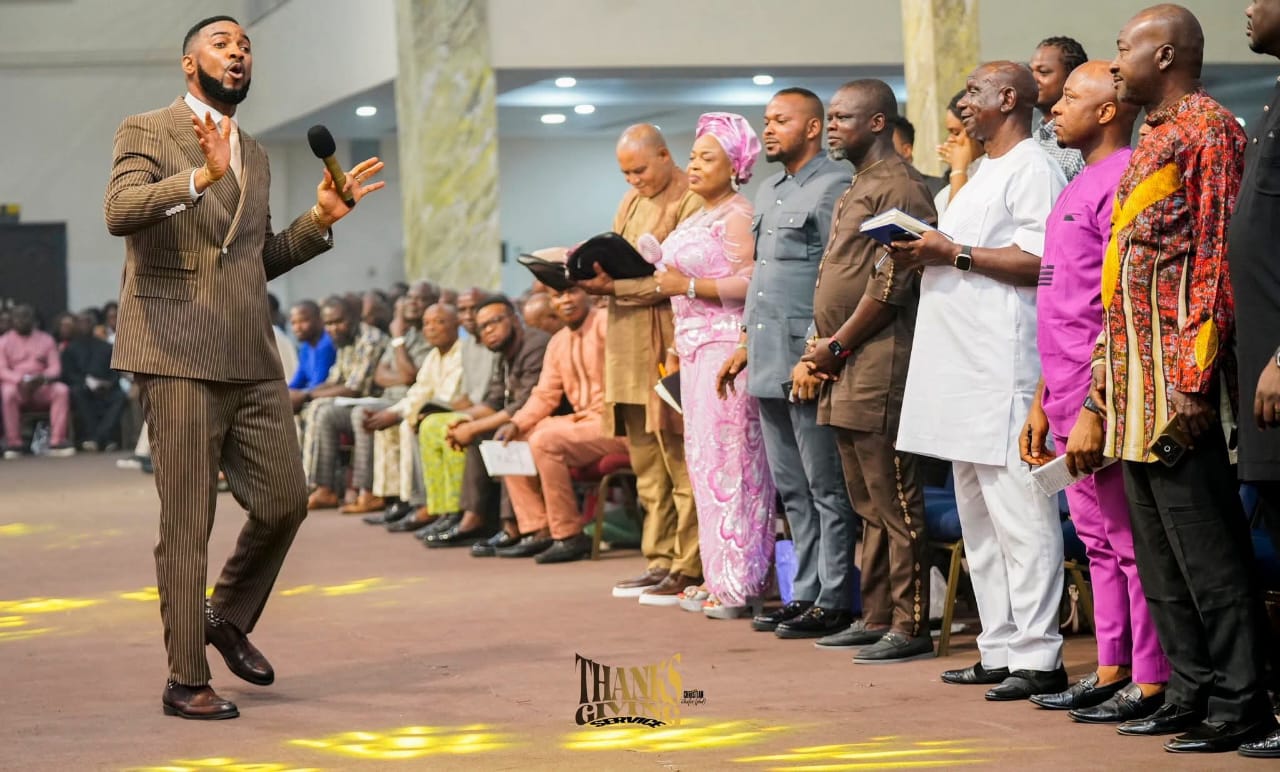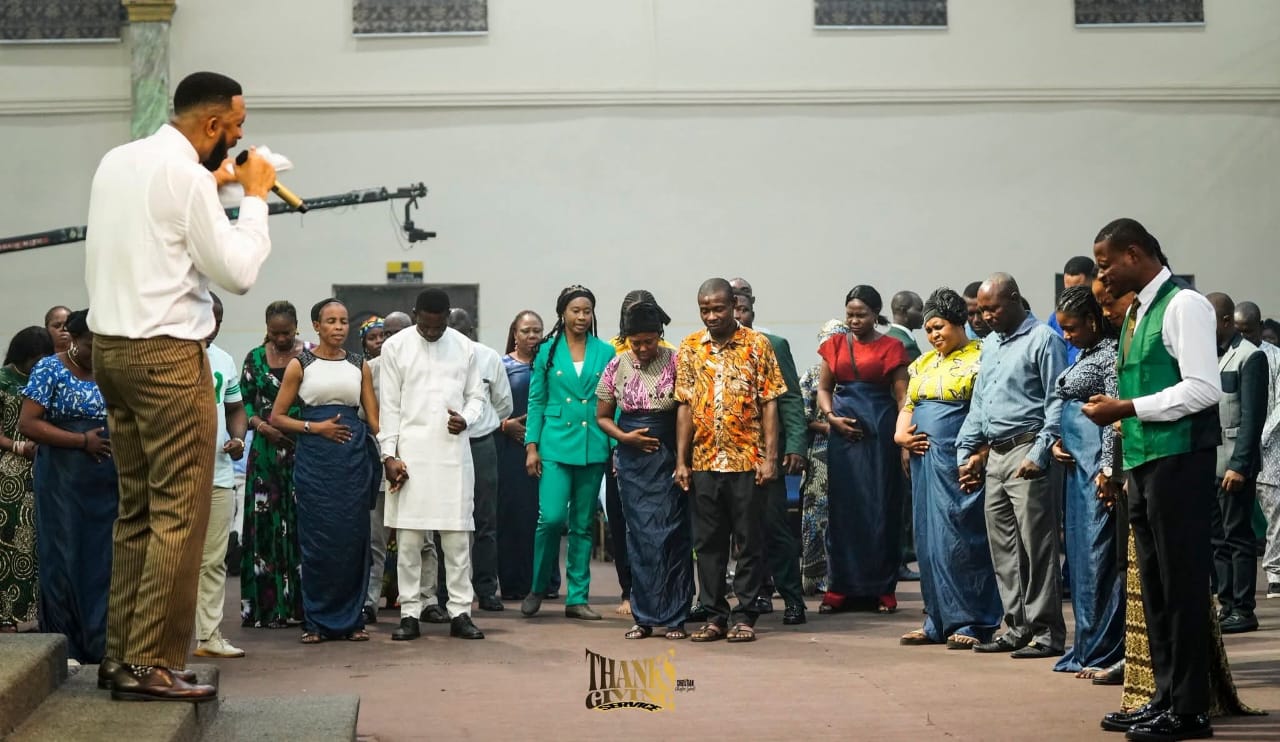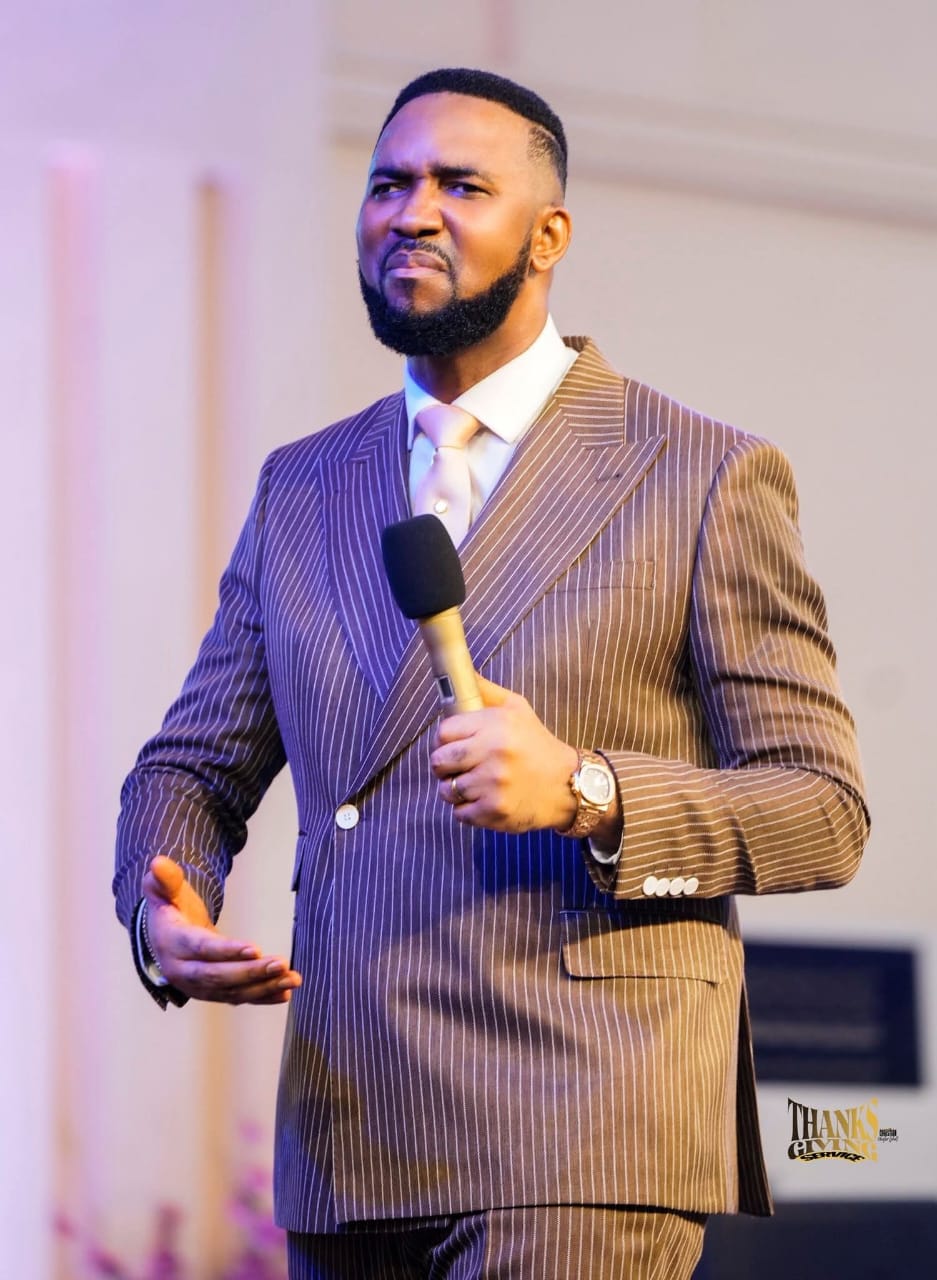society
NIGERIA, WE HAIL THEE The Stirring Saga of our National Anthem(s): Historical Perspective or Voice of a New Dawn? by Otega Ogra, FCIM

society
Wisdom of a Mature Believer: Don’t Judge What You Don’t Know — Dr. Chris Okafor

Wisdom of a Mature Believer: Don’t Judge What You Don’t Know — Dr. Chris Okafor
“To provoke mercy, keep sowing mercy.”
Mercy is often defined as compassion shown to someone who deserves punishment. It is the conscious decision to forgive when one has the power to condemn.
This formed the core of the message delivered by the Generational Prophet of God, Christopher Okafor, during the Grace Nation Glorious Sunday Service held at the international headquarters of Grace Nation Worldwide in Ojodu Berger, Lagos, Nigeria.
The Act and Power of Mercy
Preaching on the topic “The Act and Power of Mercy,”
Dr. Okafor emphasized that mercy is the believer’s escape from judgment. Referencing Psalm 136:1–20, he explained that mercy does not appear randomly; it is activated by deliberate spiritual actions and attitudes.
According to him, many people forfeit divine privileges because they are quick to judge.
A mature believer, he warned, must resist rushing to conclusions. In some cases, what appears to be clear evidence may not reflect the full truth.
“Don’t judge what you do not fully understand,” he cautioned, stressing that premature judgment can shut the door to mercy.
What Provokes Mercy?
Dr. Okafor outlined key spiritual principles that activate divine mercy:
Prayer
Prayer in deep and sincere dimensions attracts mercy. At the throne of grace, God considers the petitions of those who remain committed to Him. Even when a believer falls short, consistent prayer and kingdom partnership can move God to show mercy.
Total Repentance
Acknowledging wrongdoing and genuinely turning away from it provokes mercy. When a person presents their case before God with sincere repentance, divine compassion is released.
Sowing Mercy
Mercy operates like a seed. What a person sows is what they reap. Showing compassion, forgiveness, and kindness to others creates a harvest of mercy in return.
Unjust Hatred
Dr. Okafor also noted that when individuals are hated without cause, God may respond with mercy and divine elevation. What others fail to see in a person, God recognizes.
Conclusion
In closing, the Generational Prophet reiterated that mercy is both a principle and a harvest.
“To provoke mercy,” he declared, “keep sowing mercy.”
The service was marked by strong prophetic manifestations, including testimonies of deliverance, miracles, healings, restoration, and solutions to diverse challenges presented before God.
The Glorious Sunday Service concluded with a special thanksgiving celebration by members born in the month of February.
Sunday Adeyemi writes from Lagos
society
NOVO Announces Spring 2026 Launch: The World’s First Diamond-Backed Digital Currency and Wealth Platform Devoted to Feeding Africa

NOVO Announces Spring 2026 Launch: The World’s First Diamond-Backed Digital Currency and Wealth Platform Devoted to Feeding Africa
February 2026 — NOVO, an emerging global leader in diamond manufacturing, crypto‑banking, and ethical wealth management, today announced the upcoming Spring 2026 launch of NOVO Coin, the world’s first digital currency fully backed by certified, lab‑grown, cut, and polished diamonds stored in secure vaults in Singapore and Switzerland.
Designed for stability, transparency, and humanitarian impact, NOVO represents a new class of asset‑backed digital currency engineered to serve both global markets and vulnerable economies facing inflation, currency instability, and limited access to banking.
A Currency With a Mission: Feeding a Continent.
In a groundbreaking commitment, NOVO has pledged 50% of all corporate profits to support nonprofit micro‑finance organizations across Africa that specialize in food production, farming, fishing, and sustainable agriculture.
This initiative aims to:
Expand access to affordable capital for small and mid‑scale food producers
Strengthen local food systems and reduce dependency on imports
Dramatically lower grocery prices across African markets
Build long‑term economic resilience for millions of families
NOVO’s leadership believes that empowering Africa’s farmers and food‑producing cooperatives is the fastest path to stabilizing regional economies — and ultimately driving down global food prices.
Diamond‑Backed Stability for a Volatile World
Unlike speculative tokens or inflation‑prone fiat currencies, every NOVO Coin is backed by real, verifiable diamond reserves, manufactured through advanced laboratory processes and held in audited international vaults.
This structure provides:
Intrinsic value tied to a globally recognized commodity
Transparency through third‑party reserve verification
Security via geographically diversified vaults
Long‑term price stability for users and institutional partners
NOVO’s diamond‑reserve system is designed to offer a safe, durable alternative for nations and communities seeking protection from currency devaluation.
A Full‑Spectrum Financial Ecosystem
Beyond the currency itself, NOVO is launching a vertically integrated platform that includes:
Diamond manufacturing and certification
Crypto‑banking and digital asset management
Wealth management and life‑insurance services
Humanitarian micro‑finance distribution channels
This unified ecosystem positions NOVO as one of the first fintech institutions to combine commodity‑backed digital currency with large‑scale social impact.
A New Era of Ethical Finance
“NOVO was built on a simple belief: a currency should serve the people who use it,” said the organization’s founder. “By backing NOVO with diamonds and dedicating half of our profits to African food producers, we are proving that financial innovation and humanitarian responsibility can — and must — coexist.”
Spring 2026: A Global Debut
NOVO Coin will be available to the public in Spring 2026, with early institutional partnerships already underway across Africa, Asia, and the Caribbean.
For more information. Here is the organizations website TOPOFTHEPYRAMID.org
society
Tinubu Mourns Rear Admiral Musa Katagum: A National Loss for Nigeria’s Military Leadership
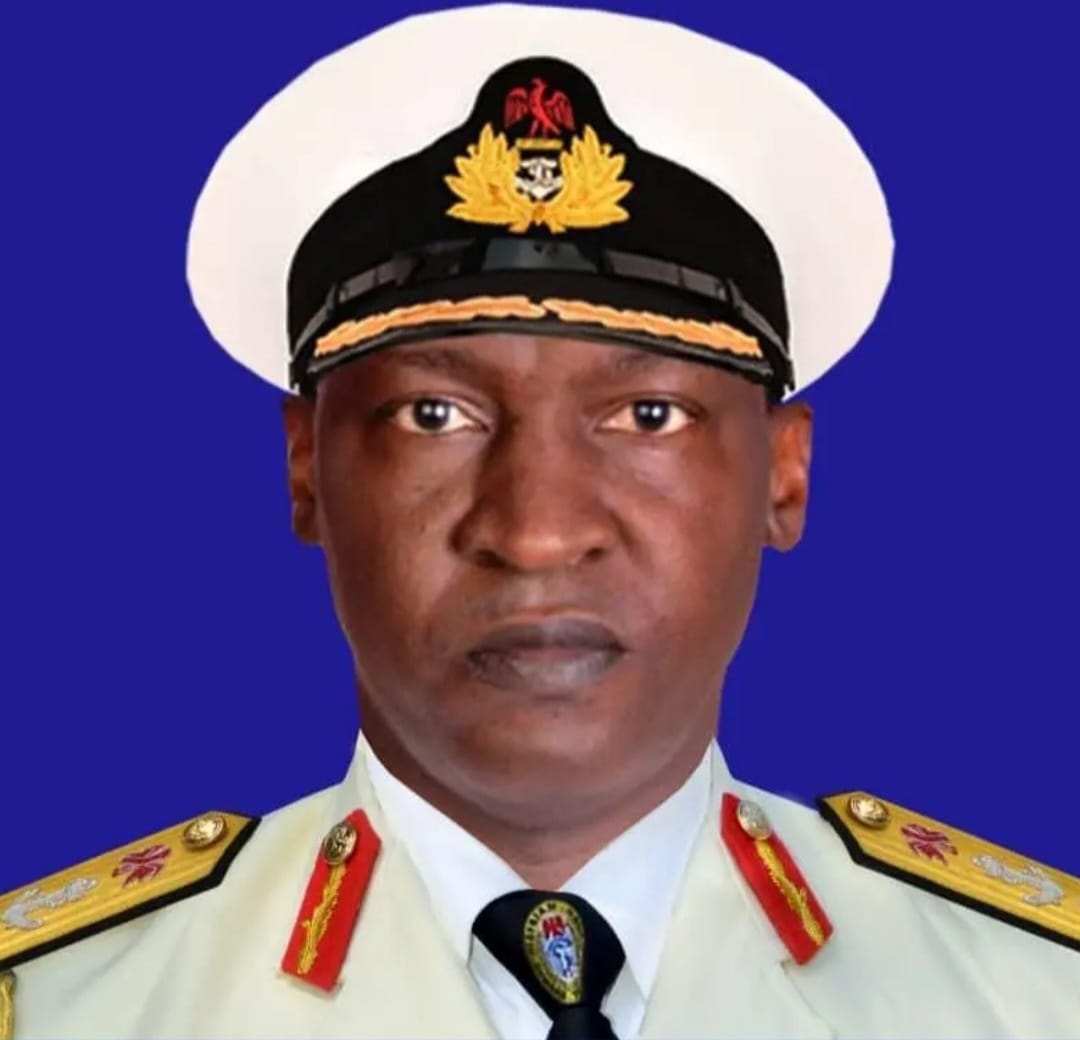
Tinubu Mourns Rear Admiral Musa Katagum: A National Loss for Nigeria’s Military Leadership
By George Omagbemi Sylvester | Published by SaharaWeeklyNG
“President Tinubu Pays Tribute as Nigeria’s Naval Command Mourns the Sudden Loss of a Strategic Maritime Leader at a Critical Security Juncture.”
Abuja, Nigeria – President Bola Ahmed Tinubu has officially mourned the death of Rear Admiral Musa Bello Katagum, the Chief of Naval Operations of the Nigerian Navy, who died on February 19, 2026, after a protracted illness while receiving treatment abroad. His passing has sent ripples through Nigeria’s defence establishment and national security architecture, marking the loss of one of the most experienced and respected maritime commanders in recent memory.
In a statement released on February 20, 2026 by his Special Adviser on Information and Strategy, Bayo Onanuga, President Tinubu described Rear Admiral Katagum’s death as a “significant blow to the military and the nation,” noting the late officer’s vast experience and “invaluable contributions” to both the Nigerian Navy and the broader “Armed Forces of Nigeria”. The President extended heartfelt condolences to the bereaved family, naval personnel and the nation at large, while praying for solace and strength for colleagues and loved ones.
Rear Admiral Katagum’s career was marked by distinguished service in several strategic capacities. Before his appointment as Chief of Naval Operations in November 2025, he served as Director of the Presidential Communication, Command and Control Centre (PC4) and Chief of Intelligence of the Nigerian Navy-roles that placed him at the nexus of naval operational planning and intelligence gathering. His leadership was widely credited with enhancing the Navy’s capacity to respond to growing maritime threats in the Gulf of Guinea, including piracy, illegal bunkering, and transnational crime.
Security policy experts emphasise that Katagum’s loss comes at a critical juncture for Nigeria. Dr. Adebola Akinpelu, a defence analyst at the Institute for Security Studies, observes that “Nigeria’s maritime domain remains a frontline in the broader security challenges facing the nation; the loss of an adept operational leader like Rear Admiral Katagum is not just a personnel change but a strategic setback.” His insight reflects broader concerns about continuity in military leadership amid intensifying threats.
The Nigerian Navy’s own statement, confirmed by the Directorate of Naval Information, affirmed that Katagum’s “exemplary leadership, strategic insight, and unwavering loyalty” were central to boosting operational readiness and national defence. According to Captain Abiodun Folorunsho, the Director of Naval Information, “His legacy remains a source of inspiration across the services.”
As Nigeria grapples with complex security landscapes at its land and maritime frontiers, the death of Rear Admiral Katagum underscores a broader national imperative: strengthening institutional capacities while honouring the service and sacrifice of those who defend the nation’s sovereignty. In the words of military scholar Professor James Okoye, “Leadership in security institutions is not easily replaceable; it is built through experience, trust and strategic clarity; qualities that Katagum embodied.”
Rear Admiral Musa Katagum has since been laid to rest in accordance with Islamic rites, leaving behind a legacy that will inform Nigerian naval operations for years to come.
-

 celebrity radar - gossips6 months ago
celebrity radar - gossips6 months agoWhy Babangida’s Hilltop Home Became Nigeria’s Political “Mecca”
-

 society6 months ago
society6 months agoPower is a Loan, Not a Possession: The Sacred Duty of Planting People
-

 society5 months ago
society5 months agoReligion: Africa’s Oldest Weapon of Enslavement and the Forgotten Truth
-

 news6 months ago
news6 months agoTHE APPOINTMENT OF WASIU AYINDE BY THE FEDERAL GOVERNMENT AS AN AMBASSADOR SOUNDS EMBARRASSING

